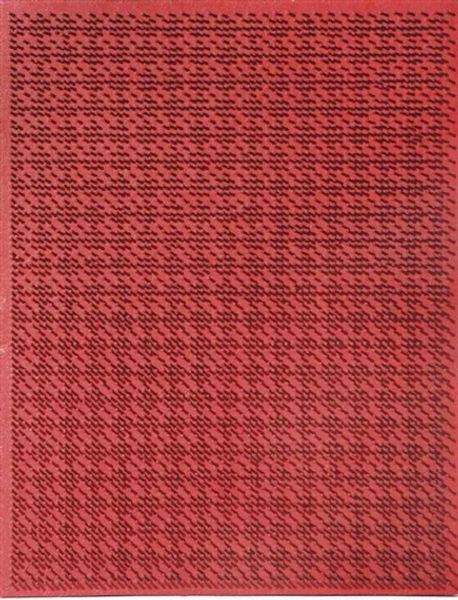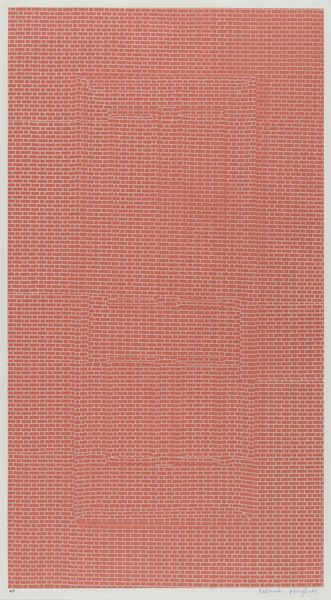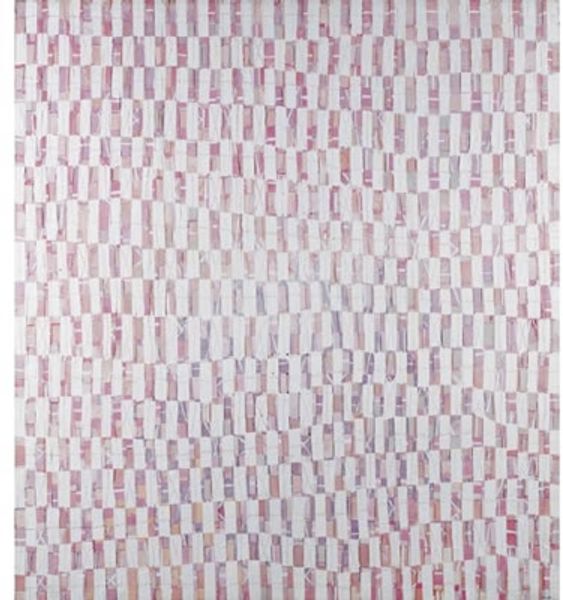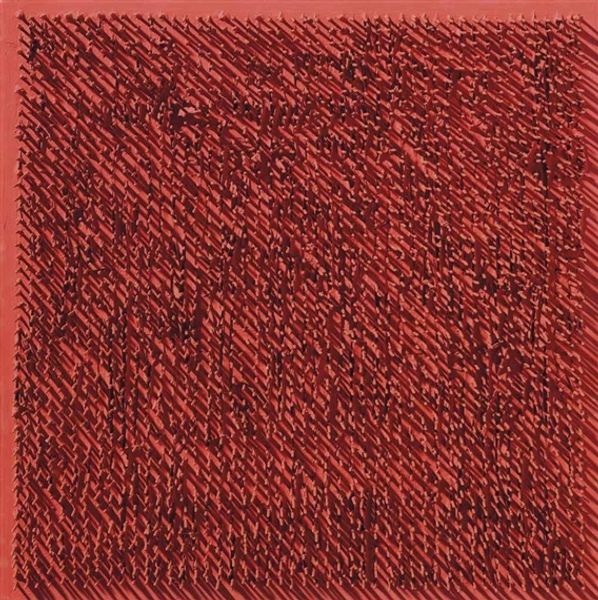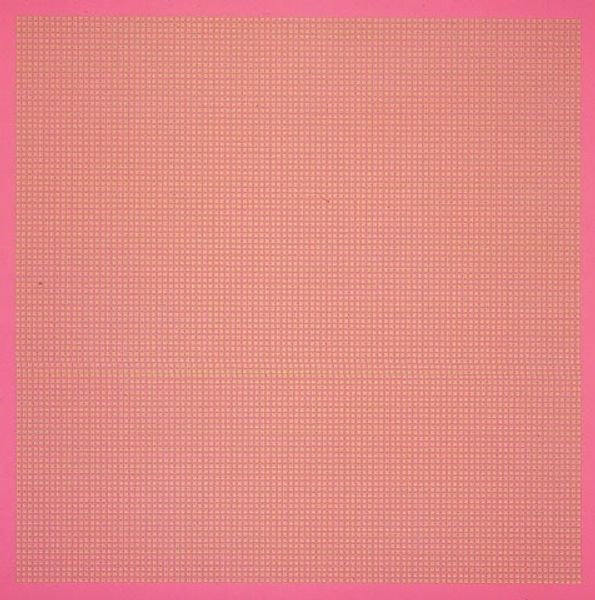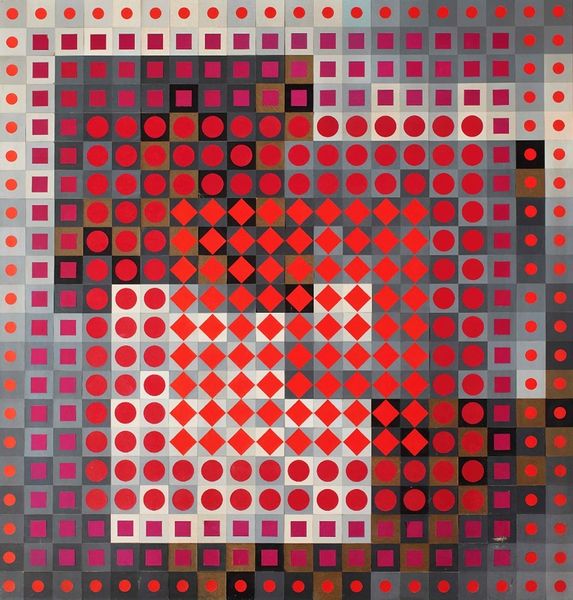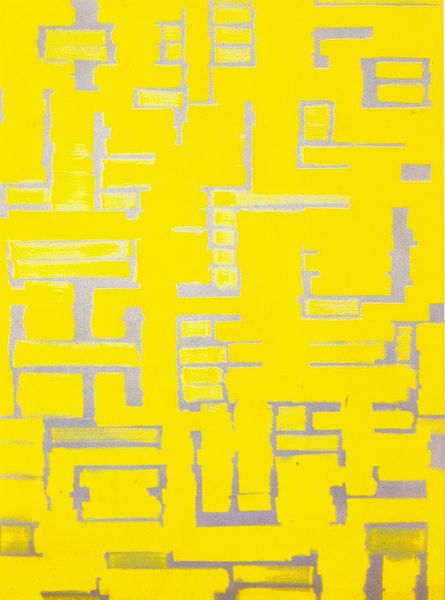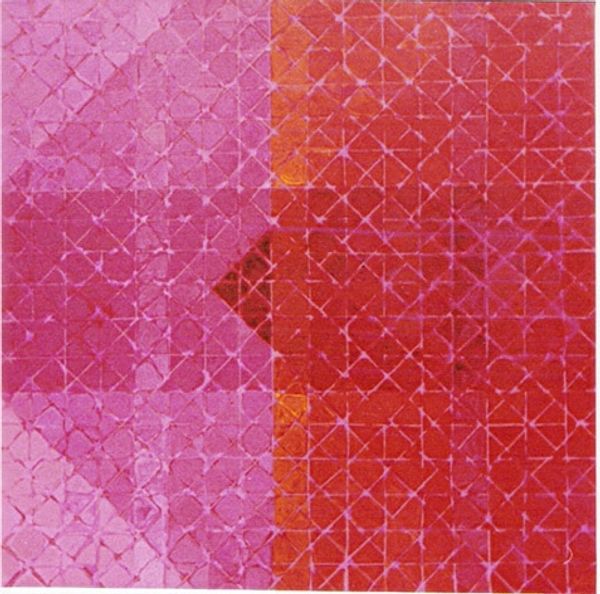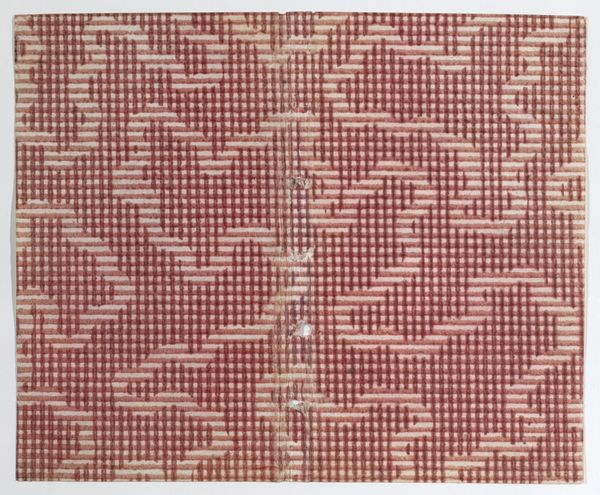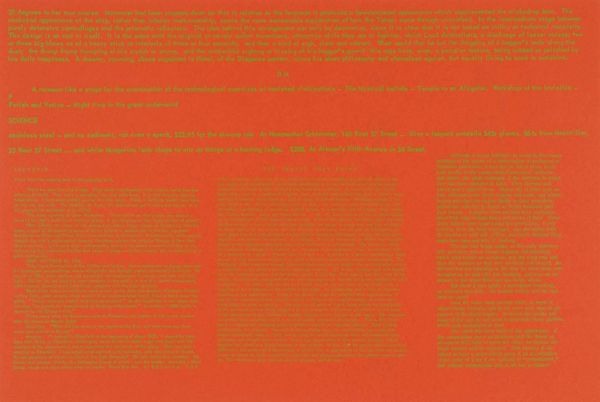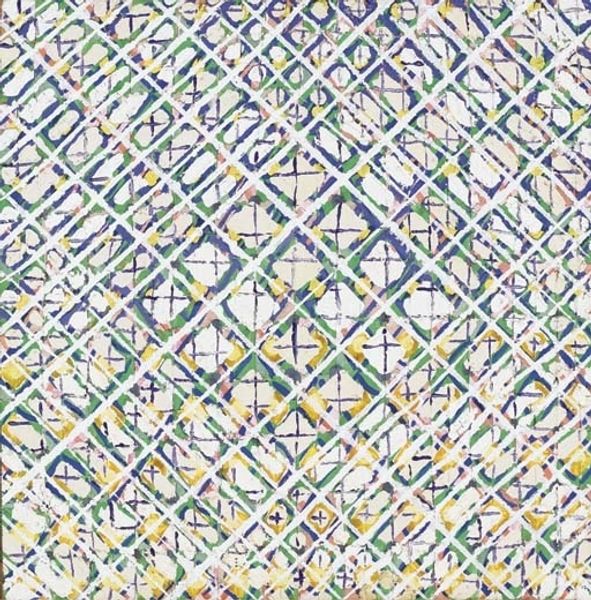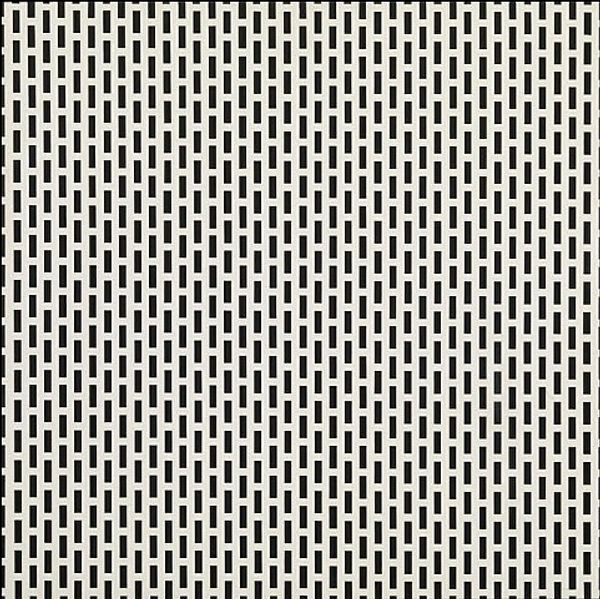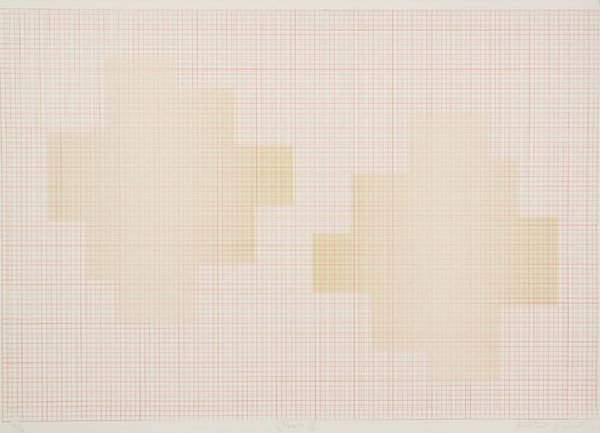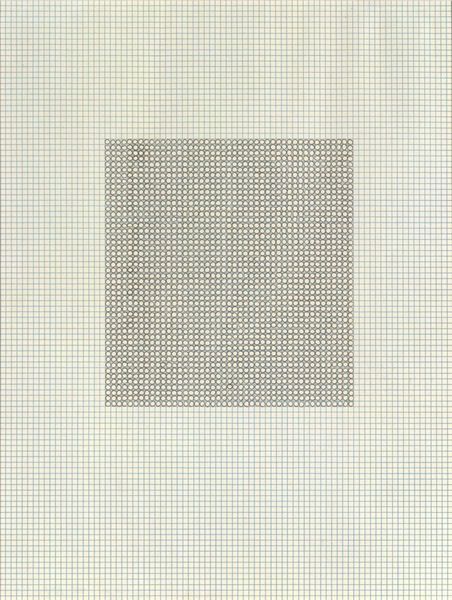
Copyright: Simon Hantai,Fair Use
Curator: Simon Hantai’s "Tabula," created in 1976, greets us with a distinctive blend of mixed media and ink. Hantai, deeply enmeshed in abstract expressionism and hard-edge painting, showcases his penchant for geometric abstraction. Editor: My immediate reaction is organized chaos! The recurring geometric grid battles this visceral sense of everything kind of melting into everything else. It's almost hypnotic. Curator: Indeed. Hantai gained recognition, in part, due to the historical moment in which he began making art and who his contemporaries were, namely figures such as Jackson Pollock. As Clement Greenberg championed abstract expressionism as fundamentally American, it shaped international dialogues surrounding it. The title of this work itself, Tabula, is thought provoking when held up to this cultural environment. Editor: Tabula – clean slate. But what’s so interesting is that he creates a "clean slate" only by working so meticulously! The process becomes the message. I'm also captivated by the interplay between the lines that compose the grid and the subtle modulations of color, even though it appears at first to just be one shade. It's not flat; it’s dynamic. Curator: What we are looking at reflects the culmination of Hantai’s exploration into "pliage", a technique wherein he folded, crumpled, and then painted or inked the canvas. Later, the folds are unfolded, which then reveals both pigmented and untouched portions. It is a technique that simultaneously embraced chance and constraint. Editor: Pliage... Folding becomes unfolding, revealing the history of its making. I feel as if that gesture toward "unveiling" can serve as a reminder that the truest insights are frequently found buried within the layers. Like how personal histories inform every moment, it is about peeling back artifice to show authenticity. Curator: It also challenges our notions about art. How much can the artist fully be in control when so much of the final composition is left to chance or at least to the unknown outcome? Hantai’s place in art history reflects debates around agency, authorship, and, especially within postwar abstraction, artistic value. Editor: Ultimately, Tabula speaks to the enduring allure of abstract expressionism while simultaneously deconstructing and interrogating the movement's core tenets. It seems less like it yearns to define itself as the clean slate that the Tabula promises. Curator: A piece like "Tabula" invites conversations around artistic movements, experimentation, intention, and the continuous reevaluation of how we see and understand art itself. Editor: Yes, definitely something to continue contemplating even as we step away.
Comments
No comments
Be the first to comment and join the conversation on the ultimate creative platform.
